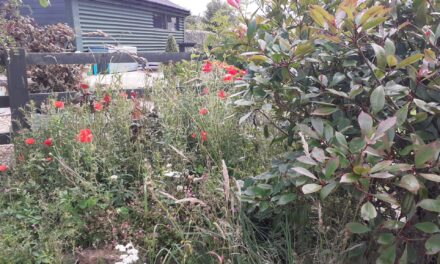I have a video of my kids from around February 2020. Just one of those snippets was enough to raise a smile on the family WhatsApp, before we knew we’d only be seeing each other through phones for the majority of the coming year. At the time, I was attempting to reason with my (then two-year-old) eldest:
Joe: Another cake, please Mummy.
Me: You can’t have another because you’ve already had two. So, if you’ve had two and you have another, how many would that be?
Joe: [pauses] Another cake.
That video is the last documented evidence of Joe’s pre-lockdown accent. The word ‘cake’ was beautiful. He sounded like Sean Bean. I won’t bore you with my list of reasons for loving Sean Bean, but I couldn’t be happier with my son sounding like Sharpe.
Then lockdown happened.
The nursery closed and we had to do our best to work around the kids. The main challenge of having a toddler and pre-schooler semi-supervised is ensuring they don’t kill themselves and/or each other while your attention is elsewhere. Of course, your focus can never truly be elsewhere, but you have to at least attempt to fob them off with toys and TV in order to get enough done to avoid being fired.
I quickly abandoned any delusions of providing wholesome, structured activities. Trying to conduct work meetings with young kids present is like having to solve a Rubik’s Cube while simultaneously putting out a fire that has been set in your own hair by a goblin who is laughing as they throw lighter fluid around the room. You soon realise ‘good enough’ is just about the best you can hope for. The TV was on a lot in our house. If you judge me for that, I don’t care because we wouldn’t get on in real life anyway.
I recognise that the BBC has a tough gig, trying to be all things to all people. I believe that it is making efforts to diversify content and casting, and I hope that it is redressing the balance of representation and remuneration in the workforce, too.
The broadcaster’s representation of different accents, dialects and regions of the UK in children’s programming, however, belies the homogeneity of its decision-makers. There are a few Scottish programmes, one Welsh presenter and, recently, Dog Loves Books has finally given us two protagonists with Mancunian accents. But the vast majority is So. Bloody. Posh. Don’t get me wrong, it’s not just the BBC. Peppa Pig has a lot to answer for – a lot to answer for.
 The change in Joe was gradual, incrementally becoming more and more southern until, one day, he said the ‘a’ in grass like the ‘a’ in ‘arse’ rather than the ‘a’ in mass. From then on, every time his vowel sounds slipped into those of the south east, I would explain that’s not how we say it. He’s pretty much fixed though, now.
The change in Joe was gradual, incrementally becoming more and more southern until, one day, he said the ‘a’ in grass like the ‘a’ in ‘arse’ rather than the ‘a’ in mass. From then on, every time his vowel sounds slipped into those of the south east, I would explain that’s not how we say it. He’s pretty much fixed though, now.
Why does it matter, really, in the grand scheme of things? I’d had the piss taken out of me at school because I sounded too Manc for a Stokie (my mum is from Wythenshawe) and then again, years later, by southern colleagues who thought my hybrid accent was hilarious. Russell Group universities have recently been in the spotlight for classism and accent prejudice. As Katie Edwards explains, from school we are conditioned that Standard English is best if we want to be taken seriously and succeed.
Accents beyond the south east are stigmatised because people associate them with the working class, pure and simple. When you make someone feel small because of the way they talk, you’re questioning their status as an equal participant in the conversation. Your accent is a part of your identity. Nobody should be ashamed of it, or wish to change it.
Kids are like sponges. They absorb and retain whatever they’re exposed to. Representation matters. Hearing people who sound like you in the culture you consume is vital, otherwise you start to believe you must become somebody else in order to be part of it. Struggles far bigger than this have shown us that difference should be celebrated. Nobody should be treated as inferior because of something fundamental to who they are. Come on, CBeebies, CiTV, Milkshake, etc, sort thi’sen out.
By Amy Stone, author of The Raven Wheel
Amy Stone’s second novel, Strong Stuff, is published by SRL Publishing and will be available to buy in April 2021.







